OUR RESEARCH
We aim to contribute to a growing body of research that:
- Supports weight lifting as an effective adjunct intervention in the treatment of trauma
- Informs the design of trauma-informed weight lifting interventions
- Centers the lived experience of trauma-impacted weight lifters to inform culture change and capacity building within fitness, movement and sport spaces
TIWL as an Adjunctive Intervention for Post-Traumatic Stress Among Adolescents in Residential Treatment
University of Minnesota, Duluth
May 2024
“The present study sought to explore how a newly developed adjunctive embodiment-based intervention, Trauma-Informed Weight Lifting (TIWL), influenced adolescent participants’ self-reported post-traumatic stress and associated mental health symptoms."
A Grounded Theory of Weight Lifting as a Healing Strategy for Trauma
Science Direct
October 2023
“Research has found significant benefits in using exercise as an adjunct treatment for PTSD, depression, and anxiety…This study used a qualitative grounded theory approach to explore how weight lifting contributes to healing for persons with a trauma history."
TIWL: Considerations for Coaches, Trainers and Gym Environments
Frontiers In Psychology
July 2023
“The results of this study aid in the reduction in barriers that currently limit the adoption of weight lifting as an adjunct intervention for trauma and contribute to the professionalization of personal trainers in trauma-related competencies.”
Upcoming Projects
Trauma Informed Weight Lifting among Trans Students: A Pilot Study
In partnership with Eva Nowakowski-Sims, Barry University
There has been very little research about transgender persons and their needs related to exercise, especially in gym spaces. Exercise and weight lifting has been found to be a transformative experience for trans persons. Yet, there are barriers and transphobic discriminations that trans people experience in gym spaces that prevent them from accessing the benefits of exercise. The purpose of this pilot study is to examine the impact of the trauma informed weight lifting program on gender dysphoria and mental health among trans students. Study findings could offer important insights to inform the development of gender affirming and trauma-informed gym spaces within universities as well as the integration of weight lifting as adjunct interventions for health and wellness.
Beyond the Binary: Searching for Gender Affirming and Trauma Informed Gym Spaces
In partnership with researchers at Barry University and Harvard University
The purpose of this study is to explore how transgender and gender-diverse (TGD) persons experience weight lifting as a healing intervention for trauma and navigate the spaces where they lift using Interpretative Phenomenological Analysis (IPA). This study explored the participants‘ understanding of their experiences and how they have made meaning from these experiences. Additionally, the researchers explored the influence of power, privilege, and oppression on the lives of the participants, and how various contextual factors influenced their experiences and interpretations of their experiences.
A literature review to characterize our current understanding of trauma-informed approaches to care and professional interactions, exercise in the treatment of psychological disorders, and weightlifting as an adjunct to therapy for PTSD.
An audit of educational and training materials for personal trainers, coaches and other fitness and health professionals to understand: If/how trainers are taught to work with trauma-impacted clients; If/how trainers are taught about vicarious trauma and how to care for themselves; How other professionals (yoga instructors, clinical psychologists, physicians, etc) are taught to work with trauma-impacted clients; and to summarize the "best practices" for trauma-informed interactions and self-care from all of the above disciplines. Potentially provide recommendations for educational materials for trainers.
Interested in partnering or collaborating on research?
Reach out to us today!

Stay trauma-informed with our monthly newsletter.
You can unsubscribe at any time. We do not sell your information.
2025 TRAUMA INFORMED WEIGHT LIFTING | ALL RIGHTS RESERVED
website by hornsteindigital.com







